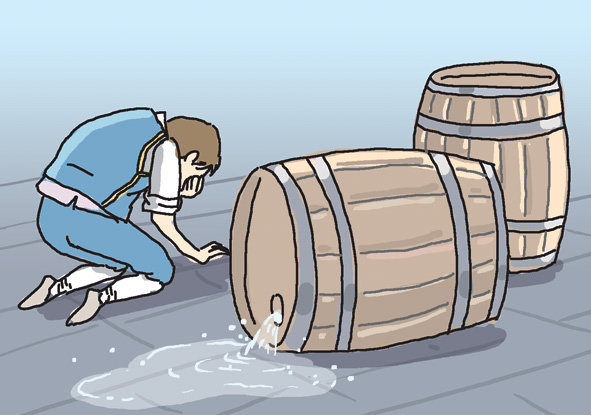What decides the fate of battle
What decides the fate of battle
Posted July. 27, 2021 08:09,
Updated July. 27, 2021 08:09

Penned by Garrett Mattingly, the Armada is a remarkable history book shedding light on the birth and the fall of the Spanish Armada fleet. Here is an episode introduced in the book. When the tensions were building between England and Spain before their historic battle, Sir Francis Drake, the infamous admiral of England, proposed to launch a preemptive attack on the Spanish troops. Befitting his record of exploits, Drake ambushed the Spanish port to burn the planks for water tanks to be supplied for the Spanish Armada fleet that was still being built.
It wasn’t a warship, a gun or gunpowder that they destroyed, but the burning of water tank materials paid off eventually. In fact, planks had to be dried for more than a year to be used for a solid water tank. Water supply was not a matter of choice for the Spanish navy, so they rushed into manufacturing a new batch of water tanks, but the planks had not been fully dried for lack of time. After the Armada left the port, the drinking water for Spanish soldiers went bad, with even its color turning. Obviously, the water was not drinkable. The sailors were left emaciated, and their morale busted from dehydration.
Arriving at the Strait of Dover tired and ill, the Spanish fleet suffered an abject defeat by the English navy troops comfortably waiting for the feeble invaders. Of course, contamination of water was not the sole reason for the fiasco. The performance of warships, tactics, and the capabilities of troops were other elements that decided the fate of the battle. But the curse of the tainted water occurred after the battle was over. Though defeated, the Armada still had many survivors left onboard. If they managed to return alive, they would’ve had another chance for redemption. But the journey back to home was long and winding, leaving most of the soldiers dead from illness and dehydration.
The outcome of battles is often determined by the strategy of a commander and the competence of field armies. But logistical support and field medicine are crucial when it comes to sealing the fate of a battle. In fact, history of warfare shows that the fatalities from weapons are outnumbered by the victims of disease.
The latest mass outbreak of the coronavirus on the Munmu warship came as a shock to me. Sophisticated training and cutting-edge technologies are only a small part of defense capabilities.







